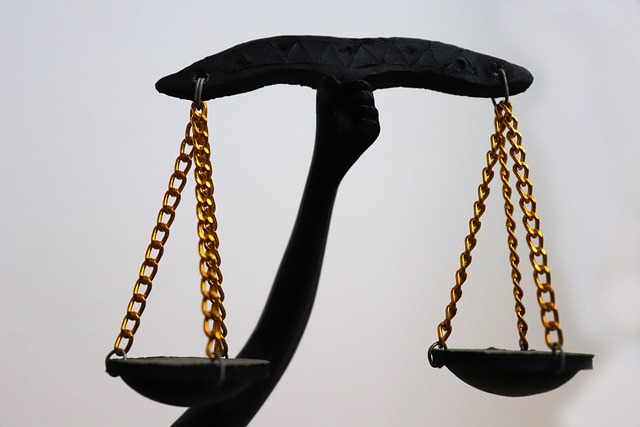RF Regulatory Agency investigations into radio frequency (RF) and wireless communication non-compliance require specialized Legal Representation for Class Action Lawsuits. Skilled attorneys defend companies, protecting them from charges, penalties, and potential indictment. These legal professionals navigate complex regulations, industry intricacies, and regulatory landscapes, aiming for favorable outcomes through jury trials or settlement negotiations. Their expertise in RF laws and legal precedents is crucial in securing extraordinary results, such as the complete dismissal of charges.
“Unraveling RF Regulatory Agency Investigations: A Comprehensive Guide. In today’s tech-driven landscape, understanding regulatory scrutiny is paramount, especially with agencies targeting radio frequency (RF) technologies. This article dissects the intricate world of RF investigations, offering insights on when and why they commence. We explore the legal complexities of Class Action Lawsuits, a significant outcome of these probes. Furthermore, it provides strategic advice on Legal Representation for Class Action Lawsuits, ensuring businesses navigate this challenging terrain effectively.”
- Understanding RF Regulatory Agency Investigations
- When and How Are Investigations Initiated?
- Navigating the Legal Landscape for Class Action Lawsuits
- Strategies for Effective Legal Representation in RF Investigations
Understanding RF Regulatory Agency Investigations
RF Regulatory Agency Investigations are crucial processes designed to ensure compliance with radio frequency (RF) and wireless communication standards. These investigations, often triggered by suspected violations of industry regulations, play a vital role in maintaining the integrity of the market. They involve meticulous reviews of equipment, protocols, and documentation to verify adherence to safety, interference, and privacy norms. The goal is not only to identify infractions but also to promote fair practices that safeguard consumers and foster innovation.
When facing such investigations, legal representation for Class Action Lawsuits can be invaluable. Skilled attorneys specializing in this field offer strategic guidance tailored to the unique complexities of RF regulations. Their expertise enables companies to navigate these proceedings effectively, aiming for the complete dismissal of all charges. By employing robust defenses and leveraging their deep understanding of industry intricacies, these lawyers help clients achieve extraordinary results—from securing favorable outcomes in jury trials to ensuring compliance without undue penalties.
When and How Are Investigations Initiated?
RF Regulatory Agency investigations are launched when there’s a reasonable suspicion or indication that a company or individual has violated relevant laws and regulations. These agencies, tasked with overseeing wireless communications, have broad powers to inquire into compliance matters. Typically, an investigation begins with an initial report or complaint, internal audits, or routine surveillance. Once triggered, the agency conducts a thorough examination, gathering evidence and interviewing stakeholders, including employees and external partners.
The process is designed to be fact-finding, aiming to uncover potential non-compliance and ensure adherence to RF laws. For those facing such investigations, securing robust legal representation for class action lawsuits is crucial. Skilled attorneys in white collar defense can navigate complex regulatory landscapes, assisting corporate and individual clients in avoiding indictment and negotiating favorable outcomes.
Navigating the Legal Landscape for Class Action Lawsuits
Navigating the legal landscape surrounding class action lawsuits is a complex endeavor, especially when facing RF Regulatory Agency investigations. The intricate nature of these cases demands skilled Legal Representation for Class Action Lawsuits to ensure corporate and individual clients’ rights are protected throughout all stages of the investigative and enforcement process. A robust strategy is essential to manage the challenges that arise during these unprecedented times, where an agency’s scrutiny can significantly impact businesses and individuals alike.
The unique dynamics of class action lawsuits require a deep understanding of regulatory environments and legal precedents. An experienced legal team can provide invaluable guidance, ensuring clients are well-positioned to defend against allegations and mitigate potential consequences. Their expertise enables them to build a strong defense, leveraging their unprecedented track record to achieve favorable outcomes, whether through settlement negotiations or courtroom battles.
Strategies for Effective Legal Representation in RF Investigations
In RF Regulatory Agency investigations, effective legal representation is paramount to navigating complex regulatory environments and achieving desired outcomes. For clients facing such inquiries, a strategic approach is essential. Firstly, understanding the specific allegations and gathering comprehensive evidence are crucial steps. Legal representatives should thoroughly examine the facts, ensuring every detail supports or refutes the claims made by the regulatory body. This meticulous process forms the foundation for building a robust defense strategy.
Additionally, skilled legal counsel can employ innovative strategies to challenge the agency’s position. By utilizing case precedents, expert witnesses, and industry-specific knowledge, attorneys can present compelling arguments. For instance, in class action lawsuits, Legal Representation tailored to these complex cases can lead to achieving extraordinary results, such as complete dismissal of all charges. This not only safeguards clients’ interests but also sets a precedent for future similar investigations.
RF Regulatory Agency investigations are crucial steps in ensuring compliance with wireless communication standards. By understanding the initiation process, navigating legal complexities like class action lawsuits, and employing effective strategies for legal representation, businesses can mitigate risks and ensure their operations align with regulatory requirements. This comprehensive approach to legal representation for class action lawsuits is essential for fostering a robust and compliant RF ecosystem.






